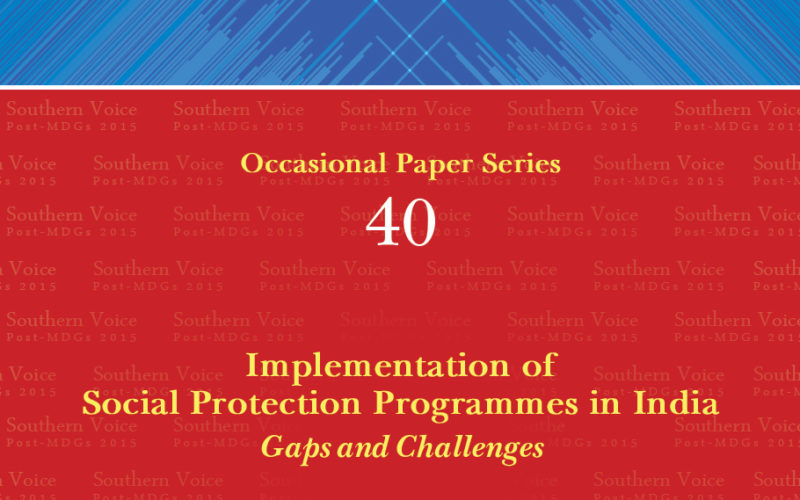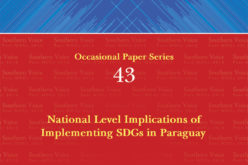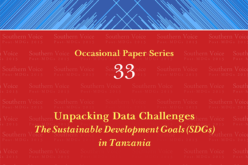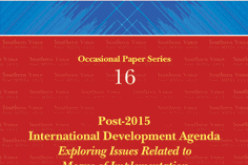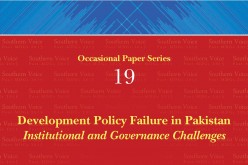 In the context of the post-2015 development, every country is expected to work towards achieving the SDGs through various programmes. It is significant to understand the ‘means of implementation’ and ‘implementation gaps and challenges’ with regard to these programmes. This paper examines two social protection interventions in India linked to the economic and social pillars of the Sustainable Development Goals (SDGs), those of poverty alleviation through the Employment Guarantee Scheme and universal healthcare through selected programmes. The paper examines issues including the integration and mainstreaming of the programmes into the SDGs implementation process; coordination, management, leadership, stakeholders’ participation, accountability, monitoring and financing; and implementation related gaps and challenges. Evidence suggests that the implementation of the programmes faces strategic-, engagement- and evaluation-related challenges. It remains a challenge to equitably meet the needs of different sections of population with common strategies. The lack of participatory planning, accountability and monitoring at local level remain critical. Evaluation challenges also exist in understanding the reality of implementation in a more evidence-based manner. The means of implementation, thus, need to be strengthened through increased partnership between stakeholders in planning, convergence and coordination of different interventions, diversification of resources, and greater sharing of knowledge on the SDGs.
In the context of the post-2015 development, every country is expected to work towards achieving the SDGs through various programmes. It is significant to understand the ‘means of implementation’ and ‘implementation gaps and challenges’ with regard to these programmes. This paper examines two social protection interventions in India linked to the economic and social pillars of the Sustainable Development Goals (SDGs), those of poverty alleviation through the Employment Guarantee Scheme and universal healthcare through selected programmes. The paper examines issues including the integration and mainstreaming of the programmes into the SDGs implementation process; coordination, management, leadership, stakeholders’ participation, accountability, monitoring and financing; and implementation related gaps and challenges. Evidence suggests that the implementation of the programmes faces strategic-, engagement- and evaluation-related challenges. It remains a challenge to equitably meet the needs of different sections of population with common strategies. The lack of participatory planning, accountability and monitoring at local level remain critical. Evaluation challenges also exist in understanding the reality of implementation in a more evidence-based manner. The means of implementation, thus, need to be strengthened through increased partnership between stakeholders in planning, convergence and coordination of different interventions, diversification of resources, and greater sharing of knowledge on the SDGs.
Author: Sanghmitra S Acharya, Gobinda C Pal
Download
5,561 total views, 2 views today


